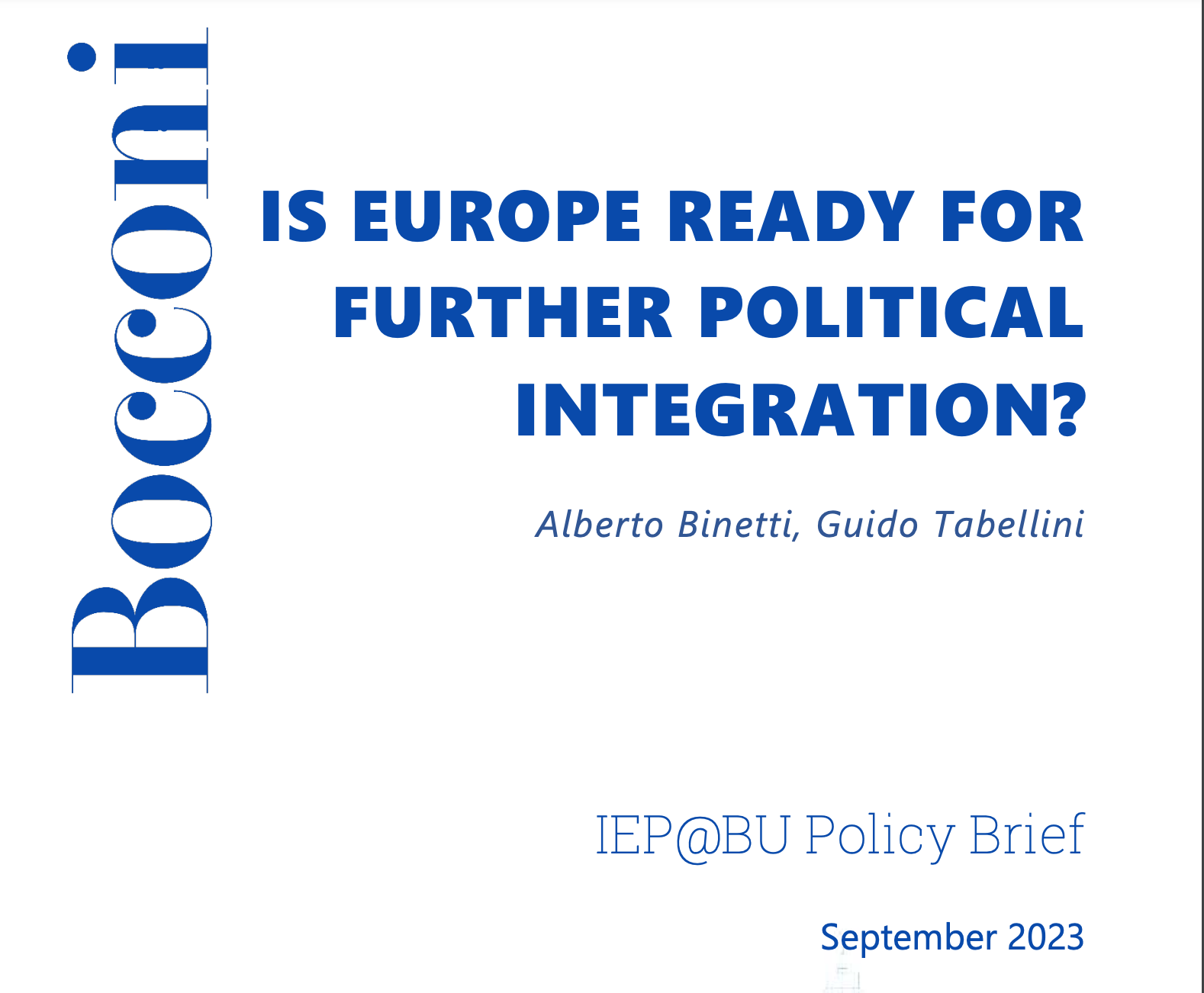Policy Brief n.1 - Is Europe Ready for Further Political Integration?
To understand the feasibility of further integration, we study the extent and evolution of cultural and policy views heterogeneity in Europe leveraging international survey data. We calculate the distribution of cultural and policy views distance both across and within countries. We find that cultural heterogeneity has increased along both dimensions in the past but has decreased in the most recent wave.

-
File
The challenges faced by European member states are increasingly global, and policymakers are forcefully arguing for concrete steps towards a European political union.
Many observers argue that cultural differences and disagreements on policy objectives between different member states are insurmountable obstacles to a fully-fledged political union.
To understand the feasibility of further integration, we quantify the heterogeneity in public opinions over broad cultural issues and specific policies in Europe, leveraging international survey data.
We find that cross-country differences are small relative to the large within-country heterogeneity. We estimate the distribution of distances in cultural and policy views between respondents belonging to the same and to different member states. Europeans do have different policies preferences and views of the world. But most of the observed disagreement is within member states. The additional disagreement between citizens of different member states is only about 5% of the average distance in views between two co-nationals. The inclusion of Eastern European countries in the analysis increases cross-country heterogeneity only slightly.
National identities, rather than divergent policy interests, seem to be the true obstacle to further political integration. But identities are malleable through education, social interactions, and debates. Moreover, national political representation induces politicians to “bring home trophies” and strengthen nationalist tendencies in public opinion. If instead collective decisions at the EU level were taken by institutions elected by all European citizens, the forming of cross-border coalitions could reinforce common European identities.
If the EU starts to think concretely about how to achieve further political integration, it is important to be aware of what are the true difficulties ahead, and how they can be overcome.
IEP@BU does not express opinions of its own. The opinions expressed in this publication are those of the authors. Any errors or omissions are the responsibility of the authors.

